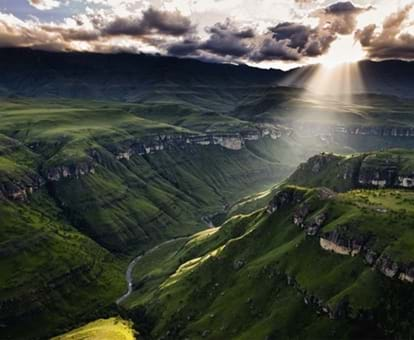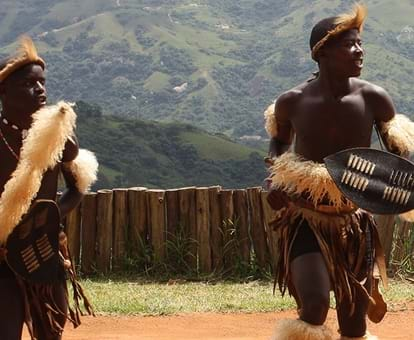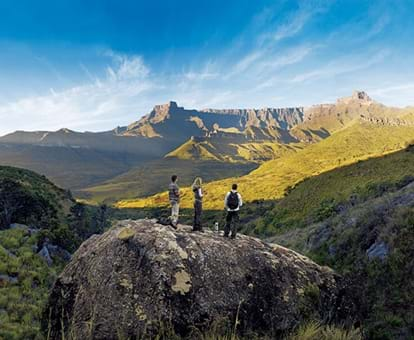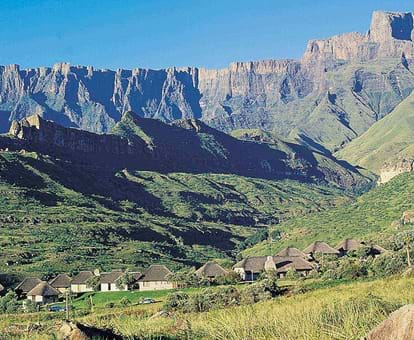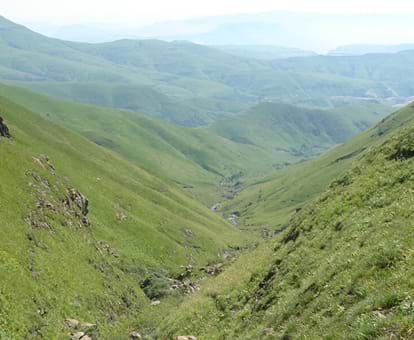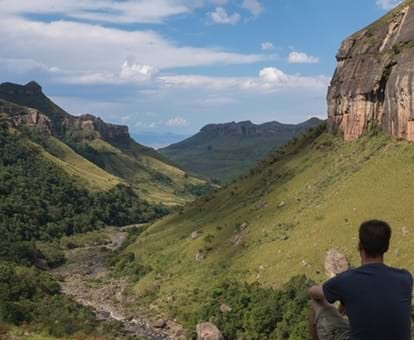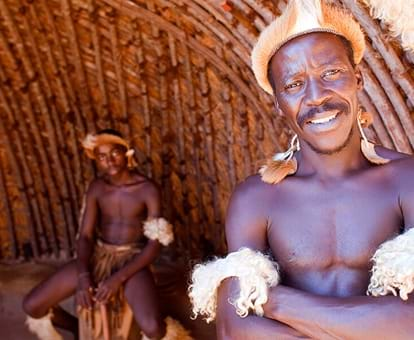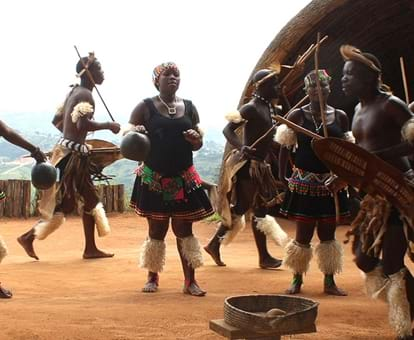By creating an account, I agree to the
Terms of service and Privacy policy
Choose your country and language:
Africa
Americas
Asia Pacific
Europe
BBe they in the enchanting and vast Drakensburg Mountains, Izintaba zoKhahlamba in Zulu, down along the south coast of Durban along the Umkomaas River Mouth, or any part of KwaZulu-Natal or South Africa for that matter, Zulus are generally a proud people. Whether one lives in a rural area or is an "urban Zulu", to paraphrase the late renowned popstar Busi Mhlongo, Zulus generally adhere to the beliefs of their forebearers—and live in many worlds in fact. Yes, invite them for a good helping of modern culinary delicacies, and no matter their country of origin, Zulus will happily join you—and enjoy the dishes on offer.
Over and above their warmth towards meeting whoever visits the country, one of the abiding characteristics of Zulus today is their stubborn belief in their traditional customs and indigenous belief systems. From time immemorial, the Zulus have always held a strong belief that the closest human link the living have with God, uMvelinqangi is through the connection they have with amadlozi, a Zulu term for ancestors. This link is deeply spiritual, and helps to explain the Zulu people’s attitudes to ideas of fertility, life, fortune and misfortune as well as their general quest for a life lived purposefully and with integrity. The appreciation and elevation of amadlozi in the Zulu world and cosmological view say that there is never a stage where descendants of a family bloodline must sever their ties with the elders who preceded them. The living are dead without their beloved, and revered living-dead.
Whenever a family or an individual experiences a series of mishaps, questions of a possible need to appease the amadlozi arise and attain urgent attention. The call for one to appease the ancestors often involves the slaughtering of a beast, mainly a goat, and in some cases, a cow or more. When spiritual imbalances seem to wantonly threaten happiness, peace and family cohesion, you would hear Zulus ask one another about the possible wrath of the ancestors—ulaka lwabaphansi. Another way of expressing a similar sentiment in hard times is that of ukuqinisa or ukulungisa umsamo, the reinforcement and cleansing of one’s spiritual centre or pillar.
AAmadlozi are governed by a superior galaxy of senior ancestors known as amathongo. The latter are believed to be the primary custodians of umsamo or isigodlo, the Zulu people’s physical and spiritual centre. Although one may be linked to those elders who preceded them, not all of them are categorised as amadlozi in a positive sense. For example, a great maternal or paternal aunt or uncle who was known to have always been evil in their lifetime is not accorded the real status of idlozi (singular for amadlozi). This doesn’t mean that this person is necessarily cursed or pushed aside, but rather they don’t become the central figure when family rituals and sacrifices are being made. An ancestor who left a family and was known for evilness and so on, is often seen as idlozi elibi (evil ancestor). Therefore such an ancestor becomes an ancestor by virtue of blood ties only, but for all intents and purposes, has a diminished status in the world of the living as well as that of the living-dead.
It is perhaps proper to locate the importance of amadlozi in marriage. After all, the Zulus strongly believe that it is through marital relations that the ancestors are best given a spiritual home and the glory and valorisation they deserve. When a man decides to marry a woman, various rituals and cultural practices accompany this.
A man who asks for a woman’s hand in marriage is first and foremost seen as playing a pivotal role in resuscitating the ancestral kraals of his ancestors. The phrase "uvusa izibaya zabadala" (he is reviving the kraals of the elders), often expresses this strong sentiment. The centrality of the ancestors in the starting of a new family unit also finds expression in ensuring that throughout the process, family practices linked not just to Zulu culture and beliefs, but those specific to that particular family or families, are adhered to. This is done to ensure that whatever is done to connect the two love birds through the marital bond, is fully graced, sanctioned and protected by the ancestors. Since the Zulus are firmly rooted in their traditional cultures and beliefs, it is foolhardy to expect a life lived with balance without that life being guided by each family’s ancestral spirits.
IIn the modern world, it is very common for people who subscribe to Christianity to also hold very strong beliefs in amadlozi. Catholics for instance find that their veneration of their ancestors is similar to the idea of asking saints to intercede between them and God. There is clearly no confusion about substituting the ancestors for God. God is always seen as the supreme being and creator of heaven and earth while the ancestors are seen to be spiritual intermediaries.
In certain families and individuals, some ancestors emerge strongly and call for special assignments to be fulfilled. One such assignment is that of ukuthwasa, the often arduous yet significant spiritual journey which is the first step towards making a person a healer. This positive ancestral call, if adhered to and embraced with respect and humility, often yields a great deal of good for the chosen individual or family. On the other hand, if dismissed, ridiculed and polluted through evil and immoral ways, it can be a devastating and deadly force. The simple message here is that when one defies one’s ancestors, this is done at one’s peril.
Overall, amadlozi are a life-giving force. Whenever you get a chance to visit the Durban coast, watch out for various ritual cleansing and baptismal ceremonies that Zulus belonging to African churches often perform along the beaches of Durban and almost all parts of the KwaZulu-Natal coastline. Such sightings can easily offer a visitor a kaleidoscope of colours, singing, chants and dances that, while deeply spiritual and personal, can surely appease the eye and the senses.

AAbout the author
Dr Velaphi Bhedlindaba Mkhize is a poet, an author and an African healer/spiritualist. He is the president and founder of both Umsamo African Institute and South African Healers Association. Velaphi is now a consultant on Umsamo Philosophy and is highly regarded as an authority on African traditions, culture, values, ancestral wisdom and African healing. He is a columnist for Isolezwe newspaper based in Durban, and a host on Ukhozi FM.
Related articles

